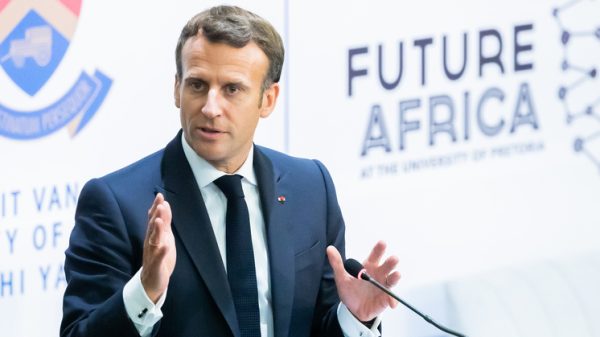 Alberto Nunez Feijoo, leader of the centre-right People's Party, may be forced to form a coalition with far-right Vox to take power in Madrid. Photo: Manaure Quintero/Bloomberg
Alberto Nunez Feijoo, leader of the centre-right People's Party, may be forced to form a coalition with far-right Vox to take power in Madrid. Photo: Manaure Quintero/Bloomberg
“The time of the patriots is over has arrived,” Italian Prime Minister Giorgia Meloni told Vox supporters ahead of a Spanish election that is certain to overthrow the socialist-led government.
Sunday’s vote will not only change Spain, she said in a video message to a rally in Valencia, when Vox leader Santiago Abascal beamed, but also changed European politics.
Pedro Sánchez has always been a gambler, but the Spanish prime minister's latest bet on winning an early election is now sure to backfire.
The 51-year-old leader of the Spanish Socialist Workers' Party (PSOE), prime minister since 2018, sparked the vote after losing local elections in early 2023. Now he faces being fired from office in favor of a new right-wing government led by Alberto Nunez Feijoo of the centre-right People's Party (PP).
The final polls ahead of an increasingly fiery election predicted Mr Feijoo, a moderate, would win but be forced into a coalition with the far-right Vox party to secure enough seats to take power in Madrid. Georgia Meloni spoke to the far-right Vox party in Spain. Photo: Guglielmo Mangiapane/Reuters
The prospect of this alliance is worrisome in Brussels because of the impact it could have on the future direction of the EU and its institutions.
Europe is shifting to the right with Conservative victories in Greece, Sweden, Finland, the Czech Republic and now Spain and possibly Poland before the end of the year.
This momentum is valuable ahead of the European Parliament elections in May 2024, which could influence the distribution of top positions in the EU and the adoption of its future laws.
p>
Ms Meloni, poster girl for the EU's new far-right alliance, was not alone on Tuesday. Hungary Viktor Orban and Mateusz Morawiecki. Poland's prime minister also sent messages urging Spanish voters to support Vox at Tuesday's rally.
Like Vox's staunch cultural activists, they oppose immigration and the undue influence of the Brussels elite, while the Spanish party flirts with Euroscepticism, which was once a minority sport in deeply polarized Spain.
«Raise your flags high, fight for victory and show that the future belongs to the patriot am,” said Mr. Orban, a veteran of many battles with Brussels.
> Pedro Sanchez, Spain's prime minister, is pushing a series of progressive political measures.
Pedro Sanchez, Spain's prime minister, is pushing a series of progressive political measures.
In April 2022, Mr. Sanchez called on French voters to support Emmanuel Macron in his triumphal race for the Elysee Palace against Marine Le Pen, the far-right leader of the National Rally.
Mr. Macron, the preeminent leader of the EU since the departure of Angela Merkel, has forged an alliance with Mr. Sanchez, who shares many of his ardent Europhile views.
It was with the help of Mr. Sanchez that Mr. Macron was able to win Ms. Merkel over to his side and overcome the «thrifty» bloc of countries opposed to pooling the EU's common debt by agreeing to the EU's gigantic 2 trillion euro coronavirus recovery plan.
Such ambitions will subside with the departure of the handsome Sanchez, who calls himself a «militant pro-European».
“The political dynamics in Europe will change because right now the PSOE is the strongest socialist party in Europe and Spain is the second largest socialist government after Germany,” said Berta López Domenech of the Center for European Policy think tank in Brussels.
“Spain has historically been underperforming in Europe well below its weight,” an EU diplomat said earlier. recognizing that this began to change under Mr. Sanchez.
«From Brussels' perspective, this would be another member state turn to the right and create momentum for a right-wing coalition in European affairs, which does not bode well for Macron.» in Italy supports his campaign. Photo: Anadolu Agency via Getty Images/Loyola Perez De Villegas Muniz
«If PP works with Vox, it will be harder for Macron to forge an alliance with Spain without being criticized for opening up to the extreme right.»
Mr Sanchez's MPs agree the vote has potential implications for Europe.
“These elections are very, very, very important not only for Spain and Andalusia, but also for Europe,” said José Aurelio Aguilar Roman, a socialist senator representing Malaga in Andalusia. In a sign of nervousness, Brussels took the rare step of issuing a full retraction on Tuesday after an article appeared in the respected newspaper El Pais saying that Ursula von der Leyen was not a fan of Mr. Feijoo.
Ms von der Leyen is a member of the same pan-European party as the NP, but according to the article, she told aides that «this man came with no ideas, just to dismantle his country's government.» Mr. Feijoo visited Brussels.
«We categorically deny any statements attributed to President von der Leyen in this article,» the commission said. «This is simply not true and we want to be clear.»
Mr Sanchez is much less liked in Spain than Brussels after pushing through a series of progressive political measures and forming alliances with Catalan independence parties and Basque separatist parties.
Pushing through major European policies
Spain took over its sixth month of EU presidency on 1 July, seen as the last chance to push through major European policies ahead of elections next May.
Madrid is responsible for brokering intergovernmental agreements on the EU's controversial migration and climate change policy until the end of 2023, which is one of the reasons the early elections caught many by surprise.
EU sources say they believe the power vacuum likely to emerge after the new Madrid government is formed could force Paris and Berlin to step in to make deals.
Over the years The European Parliament has gone from an empty-headed talking shop to a serious member of the legislature with real influence on EU law, making the May 2024 elections vital for the bloc's future lawmaking.
On 12 July, the EU law on nature restoration passed the vote to repeal it with only 12 votes, which was considered a test run of the parliamentary campaign.
The bill aims to return a fifth of the EU's land and seas to nature, but was opposed by the centre-right European People's Party (EPP), the largest group in parliament, which argued that the law harmed farmers and food security. If the EPP forms alliances with the far right after the elections, the larger conservative bloc of MEPs could block or change more laws.
Once in power, the PP could take its traditional place in EU politics, said Kirstina Kausch, senior fellow at the German Marshall Foundation in Madrid, and would not make any major waves.
“I'm more concerned about the rise of the Spanish right in the European Parliament elections and the strengthening of the conservative majority. Imagine what would happen to the Nature Restoration Law. Maybe Parliament would reject it,” she said.
“The PP leader is very mainstream.”
Rodrigo Ballester is head of the Center for European Studies at the Collegium Matias Corvinus in Budapest, which has close ties to Mr. Orbán’s government.
A former Spanish EU official said: “The tragedy is that the PP leader is very mainstream. The only consequence is if he enters into a coalition with Vox, and a coalition for which he will have to pay the price.»
Javier Moreno, PSOE MEP and president of the Spanish Socialist Delegation to the European Parliament, hopes to win the election and consolidate Madrid's newfound weight in Brussels.
«The European project will be very disturbed if the right and anti-European far right enter the government,» he said.
«Poland a”, Hungary and Italy are examples of what could happen,” he added, referring to the three anti-Brussel governments that so publicly supported Vox in Valencia.

























































Свежие комментарии